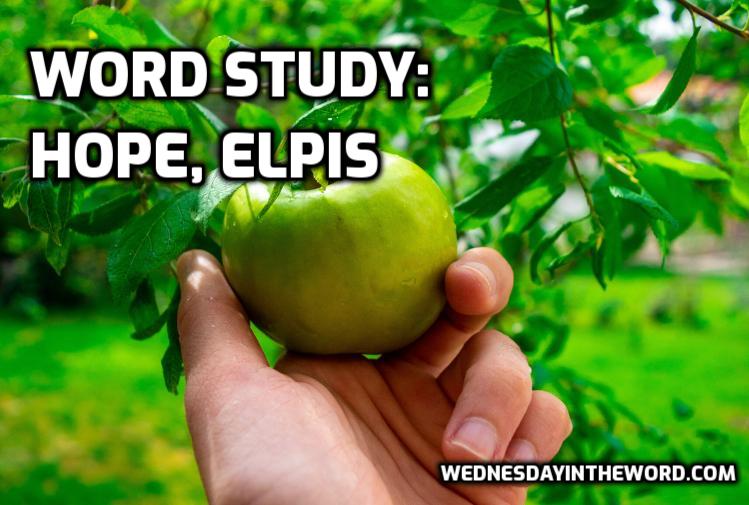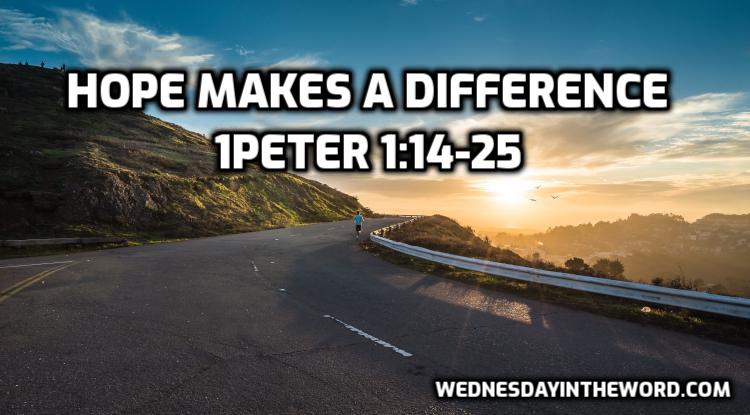
hope, elpis, G1680
Tools and resources you need to do a word study on the Greek word for hope, elpis

Tools and resources you need to do a word study on the Greek word for hope, elpis

This section marks the beginning of the end of the letter. In conclusion, Peter returns his main theme of the letter: how you deal with fellow believers and hostile nonbelievers. His answer is in each case you need the right perspective.

1 Peter 3:18-4:6 includes one of the more difficult passages in the New Testament. However we understand this section, the context suggests that the main point should be related to patiently enduring suffering for the sake of another.

Peter wraps up the second major section of his letter reminding his readers that the more we embrace the truth of who Jesus is and what he did for us, the less we have to fear. The more we know where life, hope and blessing are to be found, the freer we are to let go of this world.

In his 3 examples, Peter addresses people who are stuck in a binding social relationship which they cannot easily escape. His advice to all 3 situations is the same: As aliens and strangers you are called to live in a hostile unbelieving world. When possible show the unbelievers that you are a person of virtue by behaving in a submissive and respectful way. Love your oppressor so that your faith is not interpreted as rebellion and hostility, and they may see God’s grace through you.

Peter gives us the principle in 1 Peter 2:11-12 and then he applies that principle to 3 situations where someone is be treated unfairly in a binding social relationship: a citizen under an unjust government, a slave under an unjust master and a wife married to an unbelieving husband. This talk examines the first 2 examples.

Have you seen a map of the universe taken from space with a tiny insignificant pinpoint of light labeled “you are here”? In 1 Peter 2:1-10, rather than demoralize us with our insignificance, Peter inspires us with the plan of God and how we are a part of it.

In 1 Peter 1:14-25, Peter explains that the gospel gives us a living hope that ought change every aspect of our lives. Just as the Olympic athletes change their values, their goals, their actions, their words and their daily routines in light of their Olympic goals, so the gospel ought to change us.

In the field of psychology, “locus of control” refers to the extent to which a person believes they can control the world around them. People with a strong internal locus of control tend to attribute the outcome of events to factors under their own control. People with a strong external locus of control attribute outcomes of events to external circumstances. But both have a perspective which influences and predicts their actions. The book of 1 Peter is about that big perspective. In a sense, Peter is writing to explain a “gospel locus of control.”

An introduction to the letter of 1 Peter and a look at Peter’s calling from Luke 5.

The “so what” of being justified by faith is now we have a reason to boast. Paul explains the 3 things we boast about in Romans 5:1-11. The first is hope.

With the Babylonian army threatening their border, Jerusalem was a place with little to no hope. How could that hope be for real? To teach His people that hope is real, the Lord told Jeremiah to do something crazy. In fact it was perhaps the most ridiculous move anyone could take – unless hope is true.